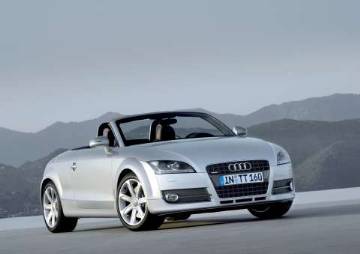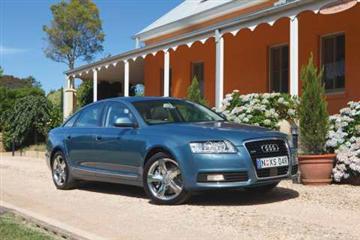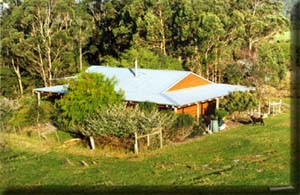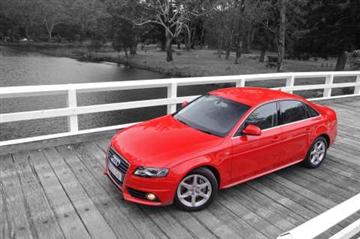|
Home | News | Road Tests | ||||||||||||||||||||||||||||||
Audi Group: Best-Ever Vehicle Sales and Revenue, Plus Record Profit for Fiscal Year 2008
Despite the already noticeable effects of the financial downturn, the Audi Group ended the 2008 fiscal year with yet more record-breaking figures for production, vehicle deliveries, revenue and profit. “With our 13th successive deliveries record, 2008 was the most successful fiscal year in the history of our company. We have been steadily improving our productivity in recent years, and the main financial figures for 2008 reflect this. These positive effects make it easier for us to respond appropriately to the crisis,” remarked Rupert Stadler, Chairman of the Board of Management of AUDI AG, at the Annual Press Conference in Ingolstadt on 10th March, 2009. “In the current year too we have succeeded so far in increasing our market share in the premium segment with an attractive model range,” added Stadler.
With deliveries of Audi brand vehicles up 4.1 per cent to the record total of 1,003,469 units, revenue for fiscal 2008 also reached a new all-time high of €34,196 (33,617)* million, representing growth of 1.7 per cent. Operating profit improved by 2.5 per cent to €2,772 (2,705) million. Net liquidity climbed by 18.2 per cent to around €9.3 (7.9) billion. Profit before tax reached another all-time high of €3,177 (2,915) million, representing growth of 9.0 per cent. Profit after tax was €2,207 (1,692) million, a rise of 30.4 per cent. With a return on investment of 19.8 (18.6) per cent, the Audi Group was also able to improve on another important ratio. The disproportionately sharp rise in earnings compared with revenue is moreover reflected in the increase in the return on sales before tax from 8.7 to 9.3 per cent. “This figure means the Audi Group is now one of the most profitable players in the international automotive industry, a particular advantage in a year in which the repercussions of the financial crisis were already very noticeable,” explained Axel Strotbek, Member of the Board of Management for Finance and Organisation at AUDI AG. “These outstanding key figures – the best ever in the history of the company – provide Audi with a sound basis for funding capital investments in its ambitious model range from its own resources over the next few years,” emphasised Strotbek. This success has been made possible by the newest and most attractive model range in the premium segment of the market. The new Audi A4, which also appeared on the market in an Avant body version in April 2008, was particularly successful. Other updated products such as the Audi A3 and A6, as well as the brand new Audi Q5, also contributed towards the rise in profit. “We will continue in 2009 to invest heavily in new products, future-proof technologies and growth markets,” said Strotbek. “We will counter the negative impacts of shrinking sales caused by the global economic crisis through consistent spending and investment discipline, and continuous process optimisation,” explained Strotbek.
Record figures for deliveries in 59 markets Audi delivered 1,003,469 (964,151) cars to customers in the past year. Sales were thus 4.1 per cent up on the previous year. The outstanding vehicle deliveries figures also brought the brand record-breaking market shares in Germany and Western Europe. In an overall market again characterised by falling sales, Audi delivered 258,111 (254,014, up 1.6 per cent) cars to customers in Germany. With a record market share of 8.1 per cent in its crucial home market, the company achieved the best level in its history as a premium manufacturer. Outside Germany, AUDI AG also strengthened its position as a premium brand: In Western Europe the brand with the four rings set another record for vehicle deliveries of 666,984 (650,407, up 2.5 per cent) units. Great Britain, the largest market in the region after Germany, grew to 101,522 cars (100,712, up 0.8 per cent). Audi also achieved substantial growth in France. The brand was able to deliver 51,200 vehicles to customers in its neighbouring country (47,540, up 7.7 per cent). The expanding market in Eastern Europe performed extremely well. Vehicle deliveries in this region rose by 18.4 per cent to 42,693 (36,073) automobiles. The biggest single export market in 2008 was again China (including Hong Kong), with 119,598 cars delivered (101,996, up 17 per cent). This meant that the German brand easily defended its position as market leader in the premium segment in 2008. Its success is moreover regularly reflected in the satisfaction rankings. In the J.D. Power customer satisfaction poll, the car maker has enjoyed a top three place in China in each of the past five years. The market performance in India, where Audi started up CKD assembly operations at the end of 2007, was also positive. Deliveries to customers there tripled to 1,050 (349) cars. In Australia, the company sold an all-time record of 9,410 units, up 30.2 per cent and doubling market share and volume (since 2004). In the United States, on the other hand, the number of vehicles delivered to customers fell to 87,760 (93,506, down 6.1 per cent) cars in a sharply contracting market. By contrast, the brand’s share of the premium market grew to 7.1 (6.2) per cent.
The subsidiary Lamborghini increased deliveries of its super cars to 2,430 (2,406, up 1.0 per cent) in the past fiscal year. Record levels of car production The Audi Group built 1,029,041 cars (including Lamborghini). This represented a new production record for Audi (980,880, up 4.9 per cent). The Ingolstadt and Neckarsulm locations accounted for around 83 per cent of total car output. Engine production within the Audi Group dipped slightly to 1,901,760 units (1,915,633, down 0.7 per cent). Consolidating growth, retaining the core workforce Audi invests around €2 billion each year, largely in new products. It is continuing with its model initiative as planned. Over the next seven years the car manufacturer will be increasing its vehicle range from the current 28 models to 40. Nor does the Group see any reason to revise its growth targets. “We are standing by our existing goals. Audi has the potential to secure yet further growth by launching new model series, and also by working in existing markets more effectively. The new A1, which is set to diversify into a separate family of models, will help us achieve precisely that,” remarked Rupert Stadler. AUDI AG is again passing on a share of the company’s success to all employees this year. The profit share to be paid out in 2009 will average around €5,300 per employee. “Dedicated, highly qualified employees are the basis for Audi’s future success. That is why, unlike our competitors, we will not be imposing a freeze on recruitment in 2009. We will be looking for up to 300 new experts, mainly engineers, and are convinced that this counter-cyclical approach will pay dividends in the future,” explained Stadler. As well as maintaining apprenticeship places at the recent years’ high level of around 700, Audi will be recruiting an extra 40 apprentices in 2009. The number of employees within the Audi Group rose to an annual average of 57,533 (53,347). Of these, 46,089 (44,698) were employed at AUDI AG, including 32,603 (31,369) at Ingolstadt and 13,486 (13,329) at Neckarsulm. With 2,181 apprentices in 20 different trades, AUDI AG has maintained the number of those in training at the German plants at the previous year’s high level. Outlook for 2009: new products for an increased market share Audi, too, is feeling the consequences of the economic crisis in the current year. “We are responding flexibly and proportionately to changes in the volume of orders and adjusting production at short notice in order to keep stock levels down,” explained Stadler. He also made it clear that Audi would carefully assess all investments and costs that are not product-related, and prioritise.
“The 17 new models we launched last year were only possible thanks to the incredible dedication of our workforce,” emphasised Dr. Werner Widuckel, Member of the Board of Management for Human Resources at AUDI AG. The company is using its entire battery of human resources measures to protect jobs and offer bright employment prospects for the future. Human resources and production turntables between the plants have long been successfully used as a means of utilising the capacity at the two locations as evenly as possible. “The market may be in crisis, but Audi is not. We are using short-time working to protect the jobs of our core workforce. And we stand by the ‘Audi’s Future’ agreement, which rules out any redundancies before 2011,” added Widuckel. According to provisional figures, Audi increased its market share in Western Europe to 4.9 per cent (4.0 per cent) in the period January through February. The market share in Italy rose to 3.6 per cent (2.5 per cent), in Spain to 4.8 per cent (3.0 per cent) and in France to 2.4 per cent (2.1 per cent). Even in the deeply depressed U.S. market, the brand succeeded in boosting its market share in the premium segment to 7.1 per cent (6.3 per cent). From January to February 2009, the Audi brand sold 119,600 cars worldwide, 20.3 per cent fewer than in the prior-year period. Efficiency and low emissions are and remain a top priority for Audi. “We will not be watering down our efficiency strategy. One of the next key moves will, for instance, be the gradual roll-out of start/stop systems. We kicked off this process with the recently unveiled A5 Cabriolet, which will be arriving at dealers in a matter of weeks,” promised Stadler. In the areas of engines, transmissions, aerodynamics and electronic components, too, Audi will be making further optimisations and building on its position as the pioneer of lightweight construction. Diesel technology will likewise remain a vital cornerstone of Audi’s efficiency strategy. “This year we will launch the cleanest diesel engine in the world – we call it the ‘TDI clean diesel’ – in the Audi Q7 3.0 TDI,” declared Stadler. This system will reduce nitrogen oxide emissions by up to 90 per cent. The Audi Q7 3.0 TDI consequently already complies with the limits of the Euro 6 standard due to take effect in 2014. “This engine is impressive proof of just how much potential the diesel engine still offers,” says Stadler. Two thousand and ten will see the arrival of a premium compact car in the guise of the Audi A1, with which Audi will be venturing into a new segment. “The response to the A1 studies shown at Tokyo in 2007 and Paris in 2008 was very encouraging. The A1 will enable us to tap into a new, attractive target group. With its typical Audi 'DNA', this car will round off our model range at the lower end and boost the appeal of the Audi brand particularly among younger customers,” explained Audi boss Rupert Stadler. *) Previous year’s growth rates and previous year’s figures in parentheses More Audi News ..... here | ||||||||||||||||||||||||||||||
|
About | Car Clubs | Home | News | Road Ramblings | Road Tests | Subscribe | Top Drive © 2009 All rights reserved. Next Car Pty. Ltd. |






